by Leslie Rowberry
Selecting VA approved homes is relatively simple when you know which properties are eligible. The financing that you can obtain through this program is extremely beneficial and can save you thousands of dollars.
Of course, you may only want to consider using this financing if you can actually purchase the home of your dreams.
Nothing beats the excitement of walking up to the front door of a house you’re proud of. Knowing that it belongs to you is priceless. Could you reasonably purchase this type of property under the guise of a VA approved home?
Before you get too far into your home search, you need to know what types of properties are eligible for a VA home loan.
We Specialize in VA Home Loan Approvals
Fill Out The Form Below To Get Help Today!
What Property Types are Eligible for a VA Loan
You may be surprised by the wide variety of homes that are eligible for purchase with a VA home loan. There aren’t many types of properties that are excluded from what can you purchase with this financing.
The main guideline is that they must all meet the minimum property requirements.
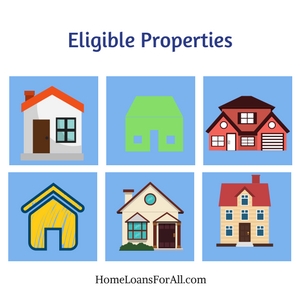 The minimum property requirements are put in place to ensure that every home is going to be safe and sanitary for the veteran to reside in the long-term.
The minimum property requirements are put in place to ensure that every home is going to be safe and sanitary for the veteran to reside in the long-term.
An objective third-party VA home appraiser reviews and makes sure the home is safe to live in (separate from an inspection).
Many of the requirements relate to serious issues in the home that require immediate attention, such as electrical issues or inadequate heating.
Any glaring problems related to the safety and sanitation of the home require immediate attention, regardless of what type of property you are looking at.
A single-family home will always meet the requirements to be one of the eligible properties for VA loans as long as it meets these minimum property requirements.
However, a single-family residence may not be in your budget or may not match up with your desires.
If you wonder what the VA approved homes might look like, you can find more details on the eligibility of various home types in the sections below.
Condominiums and Townhouses
Condominiums and townhouses are eligible for a VA home loan as long as they are in an approved community or VA-approved project.
You will need to check the list of pre-approved communities to determine if a property is already eligible for financing. If it isn’t, you may still have an option.
The local home loan center can submit documentation regarding the property and community to the VA for approval.
This could be a more time-consuming process that requires weeks or months for final approval. The development and association must be willing to cooperate with submitting the necessary documentation to record their organization structure, finances, and policies.
If they aren’t compliant with submitting the papers, you may face an interminable wait.
It’s best to inquire about a potential community before you fall in love with a condominium or townhome that isn’t going to be eligible. Are there love stories about that yet? We need to shoot a movie about that someday.
Manufactured Homes
Surprisingly, manufactured homes (also known as mobile homes) are VA approved properties and can receive financing. Not many lenders are willing to take on this type of loan; just so you know, we warned you that finding a lender will be your primary challenge.
These tend to be riskier investments for lenders, particularly because manufactured homes decrease in value over time.
Once you find a lender, the manufactured home must still meet certain criteria in order to be one of the eligible properties for VA loans:
- Must have a permanent foundation so that the home is no longer mobile
- Must have proper bedrooms, a kitchen, and a working bathroom
- Single wide trailers must have a minimum of 400 square feet
- Double wide trailers must have a minimum of 700 square feet
Modular Homes
Unlike manufactured homes, you may find lenders far more willing to issue financing for a modular home. These properties are built in a factory off-site before being assembled and fastened to a permanent foundation.
You will need to do a little research into the background and construction of the home to ensure that it follows HUD building guidelines. This is the #1 issue to make modular homes into VA approved properties.
New Construction
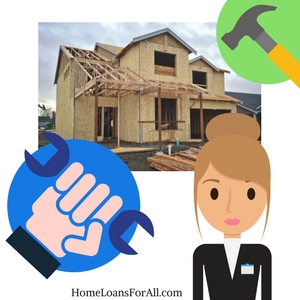 Do you dream of building a brand-new home that you get to design yourself? This isn’t outside the realm of possibility with a VA home loan. It will be a lot of work and may require far more paperwork. Though, it could be worth the extra effort to have the home of your dreams.
Do you dream of building a brand-new home that you get to design yourself? This isn’t outside the realm of possibility with a VA home loan. It will be a lot of work and may require far more paperwork. Though, it could be worth the extra effort to have the home of your dreams.
The first step to building a new construction home under a VA loan is to find an approved lender, builder, and home site.
The VA representative must approve your blueprints and plans for your home in order to move forward. In addition, the builder must be willing to offer a one-year warranty on the workmanship of the home upon completion.
Following all of these restrictions can be a real headache for prospective homeowners who want to investigate all of the eligible properties for a VA loan.
Some families choose to forego obtaining financing for their new construction home this way due to the additional work and time involved.
You may choose to apply for a construction loan with your lender to cover the initial building process.
As long as the final plans for the home would qualify the house as a VA-eligible property. Then you can always refinance the completed construction loan into a VA mortgage at this point.
It saves you the time and hassle of finding a builder who is willing to issue the warranty and it eliminates the need to receive VA approval on each step of the process.
Vacant Land
Vacant land is not eligible for a VA home loan unless it going to be the site for a new construction home financed with a VA loan. Additionally, you may not use this financing to purchase farmland.
The exception to the farmland rule is if there is a home on the property that you intend to use as your primary residence. You are can own farmland if it is a recreational hobby near your personal home.
However, you may find it more difficult to secure financing with a VA loan if the farm is fully-functioning and you have every intention of keeping it that way. If you seek farmland, call a USDA representative. They love farming properties. No wonder, they call themselves United States Department of Agriculture. They give out loans for properties in the suburbs.
Co-ops
 Have you ever considered joining in with others to pay for and maintain one large property? These are commonly referred to as co-ops where no one person owns the land or residence entirely.
Have you ever considered joining in with others to pay for and maintain one large property? These are commonly referred to as co-ops where no one person owns the land or residence entirely.
Instead, you purchase a share in the property, and everyone pitches in to take care of it over time.
Because you are not actually purchasing a property where you will have the title, a co-op is not considered to be eligible for a VA loan.
Foreclosures
You can purchase a foreclosed property with a VA loan. Many people are turning to these types of homes because they hold the potential to save you large amounts of money on the original list price of the house.
It can be even easier to purchase one of these eligible properties if it was a VA-financed home prior to the foreclosure.
When you use a VA loan, the Department of Veterans Affairs agrees to guarantee a portion of the loan.
This offers more security to the lender and allows them to offer more benefits to borrowers, including lower down payments and interest rates. However, a foreclosed property tends to wind up in the hands of the VA who subsequently needs to sell it quickly.
They reduce the price of the home for a quick sale to help their agency and the lender to recoup the costs from the missed monthly payments.
If you purchase one of these VA-foreclosed homes, you may be eligible to receive the financing for the property. Be aware that there is some risk to purchasing a foreclosed home.
It should be noted that foreclosed properties often require a greater degree of renovation or hard work in order to prepare them for a move-in date. This is ideal for someone who is considering purchasing a fixer-upper.
You may also qualify to purchase a home through the HUD Homestore with the help of a real estate professional. Some of these properties will also be considered for VA approval.
Frequently Asked Questions about VA Approved Homes
Do townhomes need to be VA approved?
Yes, townhomes do need to be VA approved in order to qualify for this type of financing. If they are not already in a VA-approved neighborhood, you may work with the association to submit the necessary documentation for possible approval.
Can you use a VA loan to buy land and build a home?
Yes, you may use a VA loan to purchase land and build a new construction home. You will need to use an approved lender, builder, house plans, and building site in order to qualify. Keep in mind that your builder must be willing to offer a one-year warranty on the home upon completion of the work.
Some people choose to obtain a construction loan to build their home. When the construction is over, they may refinance this construction loan into a VA mortgage.
Can you buy a mobile home with a VA loan?
Yes, you can buy a mobile home with a VA loan if it meets all of the criteria. It must have adequate living space (400 square feet for a single-wide home and 700 square feet for a double-wide) and have bedrooms, kitchens, and bathrooms. It will also need to be on a permanent foundation so it is no longer mobile.
Conclusion
There are several ways to go about making the most of a potential loan through the VA program. Most homebuyers find that the regulations regarding VA approved homes are rather flexible, allowing them to truly search for the house of their dreams. Keep these guidelines in mind while you’re shopping or browsing the online listings to ensure that your top choice will qualify you for this advantageous loan program.
We Specialize in VA Home Mortgages, Get Pre Approved Today – Click Here.
Looking for VA homes in Indianapolis? Check out this article!
by Leslie Rowberry

An FHA loan in Missouri is one mortgage option that “Show Me State” residents find appealing in a variety of ways. Most of us want to someday own a home, and all of us want to get the best possible deal on our mortgages. Homes are a big investment, but often a worthwhile one. They provide a sense of security and stability that renting an apartment or a duplex can’t provide. It’s also a practical long-term investment that can pay big dividends in the future. A home is an asset; and its value we can appreciate more and more over time.
But homeownership is expensive and complicated – and navigating a mortgage is even more so.
We Can Help You Qualify For An FHA Loan in Missouri
Fill Out The Form Below To Get Help Today!
This article is about the most common type of mortgage – the Federal Housing Administration loan (FHA loan). This article will also be dealing specifically with FHA mortgages in the state of Missouri. If you got more questions after this article, we have some FAQ’s down below.
What is an FHA Loan in Missouri?
FHA loans are offered in Missouri and across the country and insured by the Federal Housing Administration, a US governmental agency.
A common misconception is that these loans are actually issued by the government, but that’s incorrect – FHA loans are still issued by a private bank or lender just like conventional mortgages.
What the FHA does is insure the loan – they promise to reimburse the lender if the homeowner is unable to pay the full mortgage.
This is a promise backed by the US Treasury, and that protection makes lenders more willing to take a chance on an applicant. As a result, FHA loans have lower requirements in terms of income, credit score, etc. than traditional mortgages.
However, they can be more expensive than a conventional loan with a large down payment, which is why they mostly appeal to applicants with low credit scores or low income.
Why they do it? Since FHA is a government program, it advocates the government’s most wanted desires. The government wants you to have housing because housed families boost the economy like nothing else. Also, some people always ask for good neighbors for Christmas. Your good neighbors are waiting for you!
What are the different types of FHA loans in Missouri?
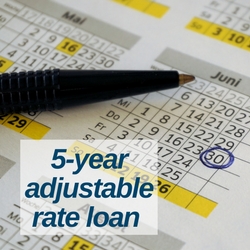
The phrase “FHA loan” usually refers to a fixed-rate mortgage insured by the FHA. But there are multiple types of FHA loans offered in the state of Missouri.
Firstly
There’s the 5-year adjustable rate FHA loan option in Missouri. This is an option that is usually best for moderate or low-income families who are buying their first home.
A 5-year adjustable-rate loan means that the starting interest rate will be lower than the FHA fixed-rate (usually 1 percent lower) and will remain at that same low rate for five years.
This gives the loan recipient some time to settle in and set aside some money for the more expensive payments. However, it can end up costing more overall.
Secondly
There’s the fixed-rate FHA loan option in Missouri. This is an option that is usually best for buyers who haven’t saved up any money for payments but want to buy a home – often newlyweds or recent graduates.
A fixed-rate loan means that the interest rate will remain steady for the duration of the mortgage, and your payments will only change as the result of slight deviations in insurance (more on that later) or property taxes. Fixed-rate FHA loans in Missouri are usually put in place for a duration of 30 years.
Thirdly
There’s the condominium unit FHA loan option in Missouri. This is an option that is usually best for low and moderate-income applicants because these are the homeowners most likely to benefit from owning a condominium.
What advantages do homeowners have with an FHA loan in Missouri?
FHA loans are the most popular loan in the United States, providing homes to 3.5 million Americans across the country. They make up around 30 percent of all home loans in Missouri. It’s not hard to see why when you consider all the advantages of an FHA mortgage.
Firstly, FHA loans in Missouri have a much smaller down payment than conventional loans. This is often the reason that home buyers choose FHA loans over other types of mortgages. Conventional home loans usually require a down payment equal to 20 percent of the total value of the loan.
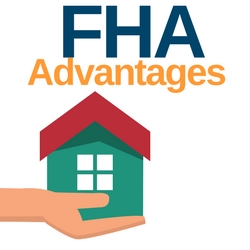
But in Missouri, an FHA mortgage often requires a down payment as low as 3.5 percent, making it a great choice for people who have steady work and can make regular payments but who have been unable to save enough beforehand for a large up-front deposit.
Secondly, FHA loans in Missouri only require a credit score of 580 or higher. We will discuss this aspect of FHA loans in more detail later.
Thirdly, FHA loans in Missouri have no minimum income requirement.
Fourthly, FHA loans in Missouri allow much higher debt-income ratios than conventional loans. Typically FHA-partnered lenders prefer 31-40 percent D-I ratios for FHA loans, but they will often accept as high as 50 percent.
As you can see, in general, the requirements for FHA loan approval in Missouri are much more flexible than they are for other types of mortgages. In fact, applicants who would normally be turned down outright will often be accepted for an FHA loan.
What are the disadvantages of an FHA loan?
FHA loans are a great option for many home loan applicants, but they have disadvantages as well as their many attractive advantages.
Firstly, FHA loan recipients in Missouri have to pay an FHA funding fee upfront. To protect its investment, the Federal Housing Administration charges an initial fee that’s usually about 1.7 percent of the total mortgage.
Since the down payments on an FHA loan are much lower than they are for conventional loans, this is still an initial saving, but many home buyers find it annoying.
Secondly, FHA loan recipients in Missouri cannot cancel their private mortgage insurance. Conventional mortgages allow homeowners to cancel their PMI payments after they’ve accrued a certain amount of equity (usually 20 percent of the total value of the home.)
FHA loans require you to keep paying for PMI until the home has been paid off in its entirety.
This means that FHA loan payments can sometimes be more expensive overall than a conventional loan, though the price will be spread out over several years and the mortgage will cost less upfront.
Thirdly, interest rates are often slightly higher for an FHA loan in Missouri. Banks charge more interest on FHA loans to make up for the low down payment.
In short, think of an FHA loan as having slightly larger monthly payments in exchange for a much smaller down payment.
What type of properties qualifies for an FHA home loan?
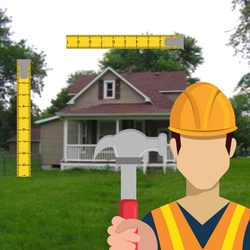
In Missouri, townhomes, manufactured homes, single-family homes, condominium units, and multi-unit properties all qualify for FHA home loans.
These properties must cost less than the maximum lending limit for an FHA loan in Missouri in 2020, which you can see described on a county-by-county basis here.
In order to be eligible for an FHA home loan, a Missouri property must also pass rigorous safety standards as determined by an appraiser from the Department of Housing and Urban Development.
This might sound like a hassle, but trust us – you don’t want to invest a lot of money in a home that’s unsafe. If it is not structurally sound or will require expensive repairs, you are going to hate it. Remember, that with the repairs you will still be paying the mortgage as well. This is a mess. Always do an inspection before buying a home.
These appraisals have a 21-page checklist of items to look for, the complete text of which can be found here.
To summarize: they will disqualify a home with cracks in the foundation or other structural concerns, loose handrails, holes or leaks in the roof or plumbing, low water pressure, no hot water, insufficient space, or a faulty HVAC system, among other concerns.
How important is credit when applying for an FHA loan in Missouri?
Any time you’re applying for any kind of loan, a credit score is going to be an important part of the application process.
However, having good credit is less important for FHA loans than it is for more conventional loans. In Missouri, most lenders only require a middle credit score of 580 for an FHA mortgage. Conventional mortgages seek for about 650-700 points score.
Most lenders will also want to see three open tradelines on your credit report that have been there for a minimum of 12 months.
However, the Federal government did not just set this credit limit of at least 500. If you do some research you may find FHA-partnered moneylenders that will accept credit scores lower than the average.
However, these lower credit requirements will require a higher down payment upfront – so you’ll have to decide which is a bigger concern for you.
Also, some lenders in the state of Missouri may allow “additional forms of credit” to take the place of a standard FICO credit score.
These usually involve long-standing payments like those made to an electric company or other utility company, or possibly to a cell phone provider.
Requirements for an FHA loan in Missouri
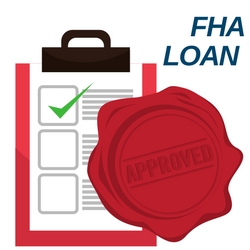
Getting an FHA loan in Missouri in 2020 usually requires a credit score of 580 or higher, proof of employment for two years, and total monthly debts that are less than or equal to 43 percent of your total income.
However, lenders can set their own requirements, and if you do your research you may find an FHA-partnered bank or mortgage company with different qualifications for loan applicants.

As promised, here’s our FAQ!
How do you receive an FHA loan in Missouri?
Though it’s commonly thought that FHA mortgage is actually originated by the government; this is a misconception.
You will have to ask around at your local Missouri banks and mortgage lenders to see if they are approved to offer FHA loans – most likely, they will be.
We recommend you “shop around” and compare multiple moneylenders to see who is offering the best deal and the most flexible requirements.
Once you decide on a partnered lender, applying for an FHA loan works just like any other mortgage.
A representative from the lender will check your credit score, income, debt, and more. They need to make sure you fit the requirements listed in the last section of this article.
Once you’re approved, you’re well on your way to owning a home in Missouri.
What are the FHA loan rates for Missouri?
Interest rates on home loans change constantly – we could give you a number for the exact date this article was written, but it might be outdated by the time you’re reading it. In fact, loan rates often change on a daily basis.
Banks are responsible for setting their own loan rates and usually do so in a way that will compete with current economic trends.
Ask different lenders what their rates are and try to pick one with the lowest rate possible so that you won’t have to pay as much over time.
Do you have to be a first-time homebuyer for an FHA loan in Missouri?
No – anyone who meets the requirements can get an FHA loan in Missouri. However, this is a common misconception because of the fact that first-time homebuyers are usually the clients who benefit the most from an FHA mortgage.
What is the maximum income limit for FHA loans?
There is no maximum income limit – again, anyone who meets the minimum requirements can get an FHA loan in Missouri.
However, conventional loans often cost less overall than FHA loans, so if you can afford the higher down payment you might consider that as an alternative.
Additional Resources for Missouri FHA Loans
Homeownership Assistance in Missouri (HUD)
City of Kansas City, MO – Neighborhoods & Housing Services
VA Loan in Missouri – Loan Limits and Eligibility
Get Pre Qualified for a Missouri FHA Loan Today – Click Here.
by Leslie Rowberry
What is the VA Certificate of Eligibility?
 The VA Certificate of Eligibility is proof to your lender that you meet the criteria to receive the backing from the Department of Veterans Affairs.
The VA Certificate of Eligibility is proof to your lender that you meet the criteria to receive the backing from the Department of Veterans Affairs.
You must meet certain service requirements regarding the length of time you served in a branch of the armed forces, whether during wartime or peacetime. Some spouses may also qualify for the Certificate of Eligibility.
During the application process, you may hear this referred to or abbreviated as the VA loan COE.
We Specialize in Helping Veterans Find Home Financing, Get Pre Qualified Today – Click Here.
How Do I Get My VA Loan COE?
There are multiple ways you can obtain your Certificate of Eligibility, whether on your own or in conjunction with your lender.
Depending on the specific information you have and your access to the eBenefits portal, you may find one of these methods to be easier than another.
Many of the lenders that offer the VA loan program have access to the web-based system that establishes your eligibility.
With their help, you can obtain your VA loan COE in a matter of minutes. Not all veterans and service members will qualify for this method, so be sure to ask your lender.
-
- Apply online through eBenefits.
If you feel confident online, you can apply on your own using the eBenefits portal. Users who have an existing account can use their current login credentials or register for a new account.
From here, you can follow the prompts to guide you through the process of verifying your eligibility.
This is the most time-consuming way to receive your VA loan COE. You will need to fill out VA Form 25-1880 (Request for Certificate of Eligibility). The completed form can be mailed to:
VA Loan Eligibility Center
Attn: COE (262)
PO Box 100034
Decatur, GA 30031
What are the VA Entitlement Codes?

The VA entitlement codes are the numbers that describe the type of service that qualifies a veteran for the financing this program offers.
They have a numerical value assigned to specific types of service and time periods.
For the most part, these numbers are used internally to note which criteria you met.
When you officially receive your Certificate of Eligibility, your entitlement code will be located in the upper left-hand corner.
The codes range from one to eleven, representing service periods from World War II through the Gulf War.
The entitlement codes don’t play any part in how much of the maximum entitlement funding you will receive from the Department of Veterans Affairs.
These codes simply notate how you met the criteria to be eligible for the loan.
How Do I Find Out if I’m Eligible?
Many service members are eligible for the VA loan, but they don’t take advantage of the many ways that this loan can help them to save thousands of dollars.
You should start by evaluating whether you meet the requirements for the program.
Meeting the minimum requirements is easier than you may imagine. You can qualify if you have served through any branch of the armed forces, including the Active Reserve or National Guard.
The minimum service requirements will vary based on the time period in which you completed your duties. However, they typically include at least one of the following requirements:
- Served for 181 days on continuous active duty during peacetime (90 days during wartime)
- Served less than 181 days on continuous active duty and were discharged for a service-connected disability
- Served six years in the Reserve or National Guard
- Discharged from the Reserve or National Guard due to a service-connected disability
You must have a discharge for reasons other than dishonorable conduct.
Spouses may also qualify if they are the widow or widower of a veteran who died while in service, died from a service-connected disability, or had a spouse become missing in action or a prisoner of war.
If the death was not connected to a service-related disability or injury, you must be in receipt of the Dependency and Indemnity Compensation. Spouses must remain unmarried until the age of 57 and become married after December 16, 2003 to be eligible.
These are general guidelines to help you determine your entitlement for the VA Certificate of Eligibility. You can view the full requirements here for more information.
VA Certificate of Eligibility FAQs

How long does it take to get a Certificate of Eligibility?
If applying through your lender or online, your Certificate of Eligibility may come back in just minutes.
Applying through the mail will require more time and may take up to six weeks before a decision is issued.
Does a VA home loan Certificate of Eligibility expire?
No, a Certificate of Eligibility does not expire unless you obtained it while you were on active duty. If this is the case, you will need to reapply after the active duty tour is complete.
Conclusion
Obtaining a VA Certificate of Eligibility is the first step toward obtaining financing for this beneficial loan program.
Talk with your lender today about the steps you need to take in order to qualify for your VA loan COE and a VA home loan.
We Specialize in Helping Veterans Find Home Financing, Get Pre Qualified Today – Click Here.
by Leslie Rowberry
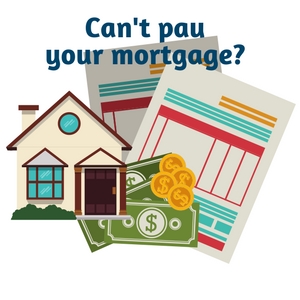 When you sit down to sign the paperwork on your new home, most people are ecstatic to begin their journey as homeowners. The excitement is almost palpable regardless of whether it’s your first house or your fiftieth. Unforbanktunately, life circumstances can sometimes enter the picture and cloud your once clear image of the future. Maybe you’ve faced unexpected health issues or the company you worked for went bankrupt. Perhaps your spouse passed away. No matter what your specific circumstances may be, you aren’t alone if you find yourself in a situation where you can’t pay your mortgage.
When you sit down to sign the paperwork on your new home, most people are ecstatic to begin their journey as homeowners. The excitement is almost palpable regardless of whether it’s your first house or your fiftieth. Unforbanktunately, life circumstances can sometimes enter the picture and cloud your once clear image of the future. Maybe you’ve faced unexpected health issues or the company you worked for went bankrupt. Perhaps your spouse passed away. No matter what your specific circumstances may be, you aren’t alone if you find yourself in a situation where you can’t pay your mortgage.
People all over the country can find themselves facing financial hardship and unable to make their mortgage payments. We will walk you through the steps you need to take to be able to come to terms with this problem in the best possible way. Following these steps, you can help to minimize the havoc that can be wreaked on your finances and home life by missed mortgage payments.
Looking for a new mortgage with low interest and affordable payments? Click Here!
If you find yourself in this unfortunate predicament, the most important thing you can do is call your lender and talk with them right away. It’s important to open the lines of communication between you and your lender before things move too far along.
Steps to Take When You Can’t Make Your Mortgage Payment
Back To Top
Chances are that you know you will have a difficult time making your mortgage payment in advance of the time it is due. By taking charge of the situation before it moves too far along, you will experience a greater sense of control over the following events. Many homeowners struggle to identify which steps they should take first when they know they are going to miss a mortgage payment.
These guidelines should help to simplify the situation and give you a clearly-defined path for how to proceed.

Make Some Phone Calls
In order to move forward productively, you’re going to need to open the lines of communication with several important people. First and foremost, you are going to need to set aside a few hours to make some phone calls to the most pressing agencies. This can help you to make a more solid plan moving forward and possibly help you to find a solution to your missed payment.
Call Your Mortgage Provider

The first person you need to call is the company who is expecting your mortgage payment at the beginning of the month – your mortgage provider. Some people have a difficult time tracing the appropriate phone number and contact information when they’re already overwhelmed by this situation and having trouble paying their mortgage. However, it should be fairly easy to find listed on your monthly loan statement.
Before you call, you should have a plan of what you need to say and do once you reach a representative.
Outline a plan for explaining why you can’t make the mortgage payment in the first place. Structure your explanation in a way that is clear and makes sense to explain to an outside person. If you need to, it may be helpful to make some notes to keep in front of you during your conversation. For many people, this is an extremely emotional subject, and it can be difficult for them to think clearly when discussing it.
Be sure to tell your lender whether this is a temporary or permanent problem. You may need to figure out the answer to this question yourself. Is this an issue that will be resolved in a few months or is it unlikely to ever reach a conclusion and you will continue to have trouble paying the mortgage?
You should also have details about your income, expenses, and other assets available when you call. This can help your mortgage representative to gain a clearer picture of why you are unable to make your mortgage payment, as well as to potentially make recommendations that would enable you to come up with the necessary funds for the monthly payment.
If you’re in the military, you should also mention any permanent change of station (PCS) orders you may have received. These orders are issued when you will be permanently moving to another station with no intention or timeline on returning to your current location. This could factor into the best decision you can make regarding the mortgage right now.
The first phone call you have to make regarding your inability to pay is likely to be the most difficult one you will face. It is extremely important to make this as soon as possible before you do anything else. Once you’ve made this phone call, it’s time to make a second call.
Contact a HUD-Approved Housing Counselor for Help
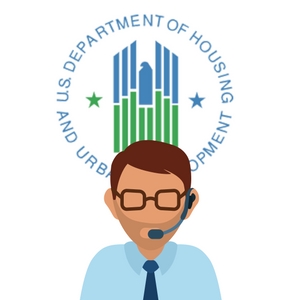 You can receive free or low-cost advice from a HUD-approved housing counselor in almost every area in the country. These professionals are available to help with a wide range of issues, including purchasing or renting a home, defaulting on a loan, foreclosure avoidance, credit issues, and more. However, they can definitely help you to come up with a plan regarding your current situation.
You can receive free or low-cost advice from a HUD-approved housing counselor in almost every area in the country. These professionals are available to help with a wide range of issues, including purchasing or renting a home, defaulting on a loan, foreclosure avoidance, credit issues, and more. However, they can definitely help you to come up with a plan regarding your current situation.
Their foreclosure prevention and homeless counseling services are always free through the program. You should never expect to pay a dime for these services.
You can find a list of all available foreclosure avoidance counselors here or call their 24-hour helpline at 1 (888) 995-HOPE for free.
In addition to offering you some sound advice on ways you could perhaps manage your finances to make room for the mortgage payments, they can also help you to connect with important programs. For example, the United States Treasury Department and the Department of Housing and Urban Development both offer a number of programs to help homeowners who may be facing foreclosure.
Because of the Homeowner Affordability and Stability Plan (HASP), you may be eligible for one of their Making Home Affordable programs. This detailed program allows for loan modifications, refinancing, and other tools that can reduce monthly payments and allow you to remain in your home.
If you have not yet reached the point of facing foreclosure, it could still be beneficial to reach out to the HUD-approved counselors to see their recommendations. A considerable financial strain on a monthly basis may be an indicator that foreclosure is on the horizon in months or years to come.
These programs could help you to avoid foreclosure if you feel like this problem may be imminent. The right counselor may be able to offer you a solution that would help your family to reach firmer financial footing.
Trouble Paying Your Mortgage? Know Your Options
Back To Top
If you can’t make your mortgage payments, there could be several different methods for you to reach a conclusion with your lender. Each of these has advantages and disadvantages that you will want to weigh extremely carefully before you select one specific plan. Educating yourself in the present gives you the best opportunity to make wise long-term decisions in the immediate moment.
Refinance
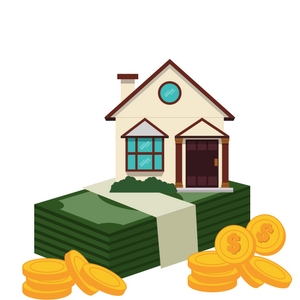
Refinancing your home is a way to start a new mortgage on the property with the end goal being lower monthly payments or a reduced interest rate. This is not always an option for individuals who may be facing foreclosure, particularly if your credit score is already leaning toward abysmal. However, you may qualify for a special type of refinancing through the HASP program.
Pros
The new loan you would obtain for the property can be used to cover the cost of the home as well as any missed payments. This is a quick and easy way to repair the damage done by missed mortgage payments without moving into the extremes of relinquishing your property. Perhaps the biggest advantage of refinancing the loan would be that you can remain in the home for years to come.
When you refinance your loan, you may even find that you’re getting a great deal. A lower interest rate on the current market could make for lower payments in addition to any other modifications made to the new financing. Hopefully, these modifications would allow you to meet the monthly payments with greater ease.
Cons
If you’re already behind on your mortgage payments, refinancing may not be a real option for you. Lenders tend to hold prospective applicants up to the same standards for a refinance as they would for a new mortgage. This typically entails a good to excellent credit score unless your lender is skilled at working with individuals who have poor credit. Your credit score may limit your approval for this process.
Loan Modification
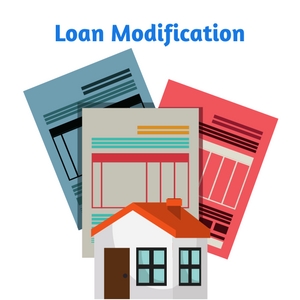
In some circumstances, your lender may be able to change some of the terms of your mortgage agreement to grant you a more affordable monthly payment. These modifications are permanent and will make alterations to the original terms of the loan such as your payment amount, the length of your loan, your interest rate, and other essential details.
Pros
A loan modification gives you a new opportunity on your current home. Instead of facing foreclosure, you can resolve your outstanding debt to the lender and lower your monthly payments in one fell swoop. This is less damaging to your credit score as well.
The other major benefit to loan modification is that the arrangement is permanent. This should allow you to make your mortgage payments more easily well into the foreseeable future. With this security under your belt, you may be able to make smarter financial decisions that will have a positive impact on the rest of your budget.
Cons
As you may imagine, a loan modification does require some amount of paperwork and processing. These items come with a cost as you move toward what could essentially be a “new” mortgage. These fees may be due to the lender upfront or they may be added to the principal balance of the loan.
Repayment Plan
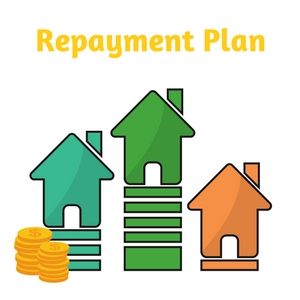
A repayment plan is pretty much exactly what it sounds like it is – a plan to pay back your lender over a specified period of time for the missed mortgage payments, late fees, and any other costs incurred during your time of financial hardship. The repayment amount will be added to your current mortgage payment instead of being due all at one time. This keeps homeowners from feeling quite so overwhelmed by the debts they racked up over the past several months.
This is an option for homeowners who faced only a temporary financial hardship that rendered them unable to pay their mortgage. If your hardship hasn’t resolved itself or you don’t think that will be possible, a repayment plan is not for you.
Pros
Like loan modification and refinancing, a repayment plan is less damaging your credit score than a foreclosure. There will still be blemishes from where you missed payments that can cause significant damage to your credit score, but it won’t be as substantial as losing the home altogether would be.
A repayment plan allows you to remain in your home and to catch up on your debt over a reasonable period of time. It’s a great way to divide up one large bill into manageable pieces without losing your home.
Cons
This will not work if your financial challenges are the result of a permanent change. For example, major medical conditions may still affect your monthly income with no end in sight. By the time you are able to regain control of your money each month, the home may have already moved into the foreclosure process.
You may have also accumulated too much debt to reasonably increase your mortgage payment to cover the costs. It may land you back on shaky ground while trying to make the newly exaggerated monthly payments.
Mortgage Forbearance
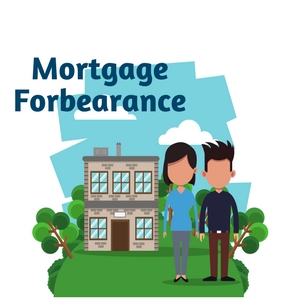
If you can’t pay your mortgage on a temporary basis, you may be able to enter into what is known as forbearance. This means that you and lender are coming to a mutual agreement to either halt your current mortgage payments or to reduce the monthly amount for a specific period of time. Mortgage forbearance could be an extremely beneficial option if you and your lender are able to come to terms with an agreement.
The details regarding mortgage forbearance are completely unique to each situation, lender, and homeowner. The length of time the forbearance will last can vary drastically, as can the specific terms regarding reduced or suspended payments. Homeowners will be responsible for making the suspended payments when the mortgage is reinstated.
It could be due all in one sum at reinstatement or spread out via a repayment plan. Alternatively, these suspended payments could be added onto the principal of the loan for a loan modification.
Pros
By temporarily taking a break from your mortgage payments, you’ll have the opportunity to get back on your feet financially. The extra money each month could help you to resolve the immediate financial crisis before your home moves into foreclosure. This option is relatively simple and allows you to keep your home without doing significant damage to your credit score.
Cons
Much like loan modification, mortgage forbearance isn’t going to be an option if your issue is permanent. It can only be offered to homeowners who need assistance on a temporary basis. Eventually, the lender is going to want the money that they loaned you for the property. You may still have a challenge ahead of you when the payments are reinstated.
Following mortgage forbearance, many homeowners have a difficult time readjusting to the new mortgage payments or making the one lump sum payment required for reinstatement. Either option can put you in a major financial bind that will require sacrifice in other areas of your life.
Short-Sell Your Home
 A short sale is the stage directly before a foreclosure where you may sell your property for a sum less than the remaining balance of the mortgage. The lender must agree to this type of sale to pay off all or a major portion of your principal balance. When considering a short sale, you should be positive that there are no better options available to help you with your current financial hardship.
A short sale is the stage directly before a foreclosure where you may sell your property for a sum less than the remaining balance of the mortgage. The lender must agree to this type of sale to pay off all or a major portion of your principal balance. When considering a short sale, you should be positive that there are no better options available to help you with your current financial hardship.
During the short sale process, you will work closely with a real estate agent to market and sell your home. However, your lender will also be actively involved in the pending transaction by helping to set the sales price, reviewing offers, and working with the new mortgage company during the closing process.
This is a scenario best reserved for those facing an extremely long-term financial difficulty that would make it nearly impossible to make payments at any point in the near future. You should be prepared and ready to move on from this home as soon as possible if you are considering a short sale.
Pros
A short sale is still easier on your credit than a foreclosure would be and may be the best option if you weren’t eligible for loan modification or refinancing. Credit scores are not quite as negatively affected by a short sale which means you will have an easier time qualifying to purchase a new home in the future.
Some individuals and families may even qualify for $3,000 in relocation assistance to help you get started in a new residence. This money could be used to cover the costs of a security deposit, first month’s rent, a moving truck, boxes, and any other miscellaneous fees associated with changing residence.
Cons
While it is better for your credit than a foreclosure, a short sale will still have a negative effect on your credit score. You will not be eligible to purchase a new home for at least two years.
Some homeowners are also required to make some sort of financial contribution to the short sale. This may be particularly true if you will be selling the home for less than what is owed on the current mortgage.
In a constantly fluctuating real estate market, housing prices have left some homeowners underwater on their current loan (meaning they owe more than the house is worth according to current fair market values). Talk with your lender about the specific parameters surrounding any unresolved debt that may result from a short sale.
Deed-in-Lieu of Foreclosure
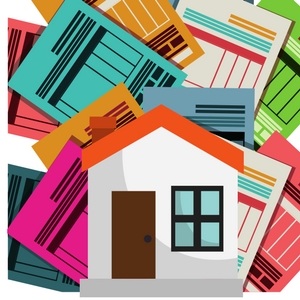 A deed-in-lieu of foreclosure (sometimes abbreviated as DIL or referred to as a mortgage release) gives you the opportunity to voluntarily surrender your rights to the property back to your lender. The exchange helps to absolve you of the current mortgage on the property, potentially releasing you from the debt and outstanding payments. The release from mortgage payments and outstanding debt isn’t necessarily a guarantee.
A deed-in-lieu of foreclosure (sometimes abbreviated as DIL or referred to as a mortgage release) gives you the opportunity to voluntarily surrender your rights to the property back to your lender. The exchange helps to absolve you of the current mortgage on the property, potentially releasing you from the debt and outstanding payments. The release from mortgage payments and outstanding debt isn’t necessarily a guarantee.
In some cases, you may be asked to leave immediately while others may be able to work out an arrangement to stay in the home for up to a year while leasing it.
If you aren’t able to sell your home in a short sale or receive any of the other accommodations from your lender, a deed-in-lieu of foreclosure may be your next best option.
Pros
The benefits of handing ownership back to the mortgage company are relatively few, apart from the obvious advantages of not allowing the home to move into complete foreclosure. Your credit will not be as damaged by a deed-in-lieu of foreclosure, and you can begin work to repair it immediately. Similar to a short sale, you could purchase a new home in as few as two years from the time the DIL is finished.
The other major benefit is the flexibility afforded to homeowners or tenants in terms of their departure. You may be able to or want to leave the property immediately after handing your rights back over. However, other families need three months or so to prepare for a major move. Depending on the agreement worked out with your lender, you may be able to live in the space rent free for a few months while attempting to make new arrangements.
Some homeowners may be eligible for relocation assistance to ease the financial burden of moving. This could range up to $10,000 in some states.
Cons
Opting for a deed-in-lieu of foreclosure is a more extreme option than many of the choices listed here. This does force you to move on from the property and start to make a new home elsewhere. It should also be noted that a DIL will have a detrimental effect on your monthly payments.
Bankruptcy
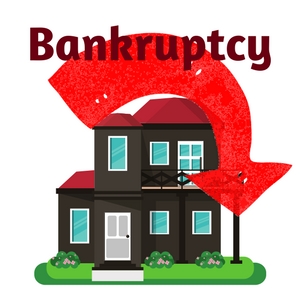
Filing for bankruptcy is a last resort for any individual or family. This status legally means that you are claiming to be unable to pay your current debts. The process begins by measuring your assets and income to determine the best way to proceed with paying your outstanding debts. Bankruptcy could ensue after a short sale fails to produce any meaningful results, particularly if the homeowner has more debt than simply their mortgage.
There are two primary types of bankruptcy, referred to as Chapter 7 Bankruptcy and Chapter 13 Bankruptcy. A Chapter 7 Bankruptcy will allow you to pay off your debts by leveraging all of your assets, including the home. When you finish selling assets that are non-exempt (such as homes, vehicles, stocks, valuable collections, etc.), the remaining unsecured debt is erased and you may start anew.
In a Chapter 13 Bankruptcy, individuals have an opportunity to repay their debts under longer-term repayment plans and may be able to keep the home. You should be prepared to propose a realistic repayment plan that can be spread out over a number of years (typically around five).
A Chapter 7 Bankruptcy may force your home into foreclosure.
Take a look at our What You Should Know About Mortgages After Bankruptcy here.
Pros
There aren’t many advantages to filing for bankruptcy other than the possibility of being released from an often overwhelming burden of debt. If you’ve been feeling crushed by the weight of what you owe to creditors, it may be a relief to finally be out from under their thumb and start to rebuild your financial status once more.
A Chapter 13 Bankruptcy does at least grant you the opportunity to keep your home if that’s what you desire to do. Unfortunately, most individuals find that this isn’t possible by the time they reach this stage. In order to make up for the missed payments, the monthly amount tends to be in excess of what they are able to pay. After all, you would now be responsible for paying your original mortgage payment and any repayment amounts scheduled by the lender.
When bankruptcy is filed, you may receive a court order for an automatic stay that provides some immediate relief. This could allow you to stay in the home for three to four months while the legal processes take place. Meanwhile, you can rest in peace without the harassing phone calls, visits, and bills in the mail from your creditors. For you, this may be a welcome respite from the chaos of creditors.
Cons
Bankruptcy has a serious effect on the state of your credit, causing it to drastically nosedive in a no time at all. Your credit score may already be abysmal after missing so many payments and incurring other debts apart from your mortgage. However, a good credit score will take a serious hit before all is said and done.
Not only does it have an immediate impact on your credit, but the effects are long-lasting. Credit reports will keep a history of your bankruptcy information for seven to ten years.
The other major disadvantage to filing for bankruptcy is that your home is likely to move into foreclosure. Unlike a short sale or a deed-in-lieu of foreclosure that would allow you to purchase a new home in just two years, buyers will have to wait seven years to achieve the status of being eligible for another purchase again.
Be Wary of Scams!
Back To Top

Is someone promising that they can help you to save your home but it just sounds too good to be true? There’s truth in the old adage that if something sounds too good to be true, it probably isn’t true at all. Consumers who are in such a vulnerable position need to take care to make sure that they don’t fall prey to scams.
Many companies will make big promises about what they can offer desperate homeowners who can’t pay their mortgage. At first glance, they sound like excellent offers to help you out of this sticky situation and put you back in the black. They may make promises to speed up your process, stop foreclosures, and more. How can you spot one of these scams and tell it apart from a legitimate offer for help when you can’t pay your mortgage?
The first thing you need to aware of is that no company can charge fees to a homeowner in this predicament until they have received a relief offer them from their lender that they choose to accept. This is a rule put in place by the Federal Trade Commission to help protect consumers, and it is known as the Mortgage Assistance Relief Services Rule. Under this rule, you don’t even have to pay the financing company if you choose not to accept the offer from the lender.
If you’re asked to pay anything upfront, be aware that it is a scam immediately.
Another prominent scam comes from companies or individuals who offer to purchase your home. They may propose an elaborate scheme where you can sell them the home at a significantly lower price but continue to live there in a rent-to-own scenario. As time passes, they may stop making payments on the mortgage or raise the rent to astronomical rates that are no longer affordable.
In both scenarios, you end up evicted from the home in an even worse financial bind than you were prior to the “help” they offered.
Anytime you are asked to sign paperwork in relation to your mortgage or assistance with your mortgage, be sure to read each and every detail thoroughly. Scam artists are notorious for placing hidden documents and key line items in this pile of paperwork that may force you into surrendering the title to your home.
Real companies who are focused on helping you instead of scamming you in an already precarious financial situation are required to disclose certain information to you upfront. Be wary of any company that offers assistance to homeowners potentially facing foreclosure without telling you these things:
They are not associated with a government program and are not approved by the government or your lender.
The lender reserves the right not to change your loan.
If they advise you to forego making mortgage payments, they must also tell you that this could result in foreclosure (losing your home) and severely damage your credit.
They may not tell you not to contact your lender.
Hiring an Attorney
Back To Top
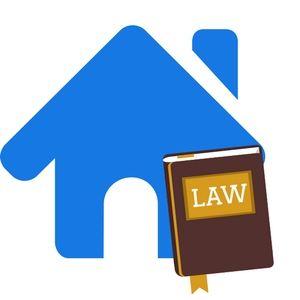
The exception to all of these rules is when you hire an attorney to help you with the loan. There are some circumstances where lawyers are uniquely trained to serve homeowners who can’t pay their mortgage. You must be careful who you accept help from in this case and be sure to do your homework.
Attorneys are allowed to ask for money upfront if they are licensed in your state, are providing legal services, and are complying with ethics requirements. However, they must place the funds in a client trust account, only taking money out when real legal services have been rendered. As the client, you must be notified each time a draw is made from the trust.
Because you may have to pay some type of fee to an attorney upfront, you need to be cautious about the services they provide. The best thing to do first is to check on their license status to ensure that they are a legitimate attorney and to see if they have faced trouble for their actions in the past. All you need to do is obtain their license number and check with the state bar for more information.
If you suspect that a company or attorney offering you help is fraudulent, you need to report it to protect other homeowners who may be unaware. You may report it to the Federal Trade Commission, the state Attorney General’s office, or the Better Business Bureau.
What Happens When I Cannot Make My Payment?
Back To Top
Eventually, there will be long-term and serious consequences for missing your monthly mortgage payments. Contacting your lender upfront when you know that a missed payment is imminent can help them to consider offering advantageous programs that allow you to keep your home, maintain your credit, and offer relief from your financial hardship. However, it isn’t necessarily a guarantee that you will qualify for any of these programs.
If you miss too many mortgage payments, the home will eventually move into foreclosure. The specifics regarding when and how the lender can proceed with the foreclosure process will vary by state and individual circumstances. You should be aware that lenders have the right begin the paperwork for a foreclosure as soon as sixty days following the missed payment.
Before the foreclosure takes place, you should receive a notice of default. This short letter may put you on notice that you are behind in your monthly payments and need to repay the lender. You will have a set period of time in which the reparations can be made, along with any outstanding late fees, interest charges, and other costs.
Once these items have been addressed with the property owner, the lender will wait until the appropriate amount of time passes per the notice of default. Then the lender can begin to pursue one of two options based on state laws: judicial or non-judicial foreclosure.

A judicial foreclosure is a supervised court hearing with formal legal proceedings. In essence, this means that you will be facing a civil lawsuit. On the other hand, a non-judicial foreclosure means that the process will not be overseen by the court.
From here, the bank will attempt to regain its initial investment by selling the property to recoup those costs. You will receive a legal notice of the foreclosure and typically find it published in the local newspaper as well. The home itself will be sold at a public auction to the highest bidder. Alternatively, the bank may purchase the property for resale at a later date.
If the lender pursues a judicial foreclosure, you will receive notice of the foreclosure and the judge will set the date of the sale.
You will have very little control over when you have to leave the home and are no longer eligible for the relocation assistance found with short sales and deed-in-lieu of foreclosures. There is no flexibility when it comes to the opportunity to remain in the home for months following the notice of foreclosure. You will have to have an immediate plan of where you and your family will relocate to.
If you want to purchase a home again in the future, you may have a much more difficult time doing so with a foreclosure on your record. There could be a waiting period of up to seven years before you can receive traditional mortgage financing once more.
Do you still owe anything on the house if they take it from you?
Back To Top
A foreclosure is never in your best interest. You are still responsible for all of the outstanding debt from this first mortgage, whereas you could have eliminated some of it with a short sale or a deed-in-lieu of foreclosure. When might this come into play?
Many homeowners are considered to be underwater on their current mortgage, which means they owe more than the house is worth. As a result, the lender may not receive the full value of the outstanding debt when the house sells at the public auction. Any balance remaining on the first mortgages from these “underwater” properties will be the responsibility of the owner to repay.
The court could enter a deficiency judgment against the property owner so that the lender can pursue any other valuable assets that could offset the remaining balance.
The exception to this is if the homeowner had insurance that would protect them in the event of a foreclosure. This insurance, known as private mortgage insurance, can help to cover the cost of any outstanding debts remaining on the first mortgage.
If you file for bankruptcy either before or directly following the foreclosure, you may be relieved from the outstanding debt on the first mortgage.
Trouble Paying the Mortgage Conclusion
Back To Top
Your best option when you can’t pay your mortgage is to take action early in the process. This gives you the most choices and the least consequences when you compare all of the potential outcomes. By prolonging the inevitable or attempting to ignore the problem, you will only make your current situation worse.
Take action today by contacting your lender or a HUD-approved housing counselor to see what options are available to you. All you have to do is pick up the phone and know what options your options are.
By preparing yourself for what the possibilities are, you can take the steps you need to take in order to be in complete control over the next stages of this process. Whether your financial hardship is temporary or permanent, there can be a reasonable solution that gives you the best possible advantage when moving forward.
FAQs
Back To Top
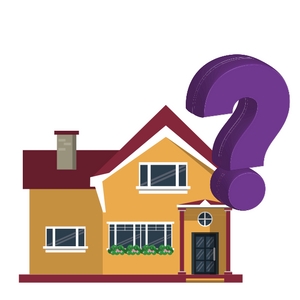
What is forbearance?
Forbearance is a mutual agreement entered into between the homeowner and the lender to either reduce or suspend mortgage payments for a set period of time. Upon their reinstatement, homeowners will still be responsible for those missed payments. The extra money may be added to the monthly mortgage payment over the coming months in a repayment plan or paid upfront for a reinstatement.
How does mortgage forbearance affect your credit?
A mortgage forbearance will have a negative impact on your overall credit score. It demonstrates that you were unable to make the loan payments and will show missed payments on your credit report. As a result, it will lower your score.
How does short-selling your home work?
A short sale is much like any other type of real estate transaction. You will partner closely with a real estate sales professional to market your home, show it to potential buyers, and sell the property. In a short sale, the mortgage company will also be actively involved in this process by setting the sales price, reviewing any submitted offers, agreeing to the terms of a sale, and working with the buyer to finalize things.
Eligible homeowners may receive relocation assistance following a short sale to help minimize the impact of moving their primary residence.
What is a deed-in-lieu of foreclosure?
A deed-in-lieu of foreclosure is when the homeowner hands the lender ownership of the property. The homeowner is then absolved of their debt and released from the monthly payments. You may be eligible to receive a relocation incentive, remain in the home rent-free for three months, or lease the property from the lender for up to one year.
How do I get a loan modification?
In order to get a modification to your current mortgage, you will need to talk to your lender. Be sure to share all of the pertinent details regarding why you believe a loan modification would be in your best interest and theirs. You may need to share your current mortgage information, debts, assets, income, and explain your current situation that is making mortgage payments difficult for you.
Can you skip a mortgage payment?
No, you cannot skip a mortgage payment. While you may forego paying your mortgage one month, you will ultimately still be responsible for paying off that bill. You will receive a notice of default and an expected timeframe in which the payment and late fees must be received to prevent foreclosure.
How many missed mortgage payments can I have before foreclosure?
The specific requirements for foreclosure vary by state, but some lenders can begin the foreclosure process in as few as sixty days.
I lost my job and can’t pay my mortgage. What can I do?
The best thing you can if you need short-term assistance with paying your mortgage is to reach out to your lender. They may be able to offer a repayment plan, temporary loan modification, or mortgage forbearance until you reach a stronger financial state once again.
I can’t pay my mortgage. What are my options?
You have a few basic options other than foreclosure when you realize that you can no longer pay your mortgage. These options include:
- Refinancing
- Loan modification
- Repayment plan
- Forbearance
- Short sale
- Deed-in-lieu of foreclosure
- Bankruptcy
Do you get to skip a payment when you refinance?
No, you do not get to skip a payment when you refinance. You may go one month without paying your mortgage during the transition between your first mortgage and the new refinance. However, that month’s payment is added to the end of your loan, effectively extending the new mortgage by one additional month.
Can I lower my mortgage payment without refinancing?
Yes, there are other ways to lower your monthly mortgage payments without moving through the refinancing process. For example, you may be able to eliminate your private mortgage insurance or extend the loan term for several more years. Talk with your lender about what options may be available to lower your monthly payments without refinancing.
Resources
If I Can’t Pay My Mortgage, What Are My Options?
Talking to a Housing Counselor
Six Things You Can Do to Avoid a Maltortgage Mis-Modification
Federal and State Agencies Stop Paying Phony Mortgage Relief Schemes
Mortgage Relief Scams
 Prospective homebuyers in the Keystone State are eager to get the best possible deal on their Pennsylvania mortgage loans. Purchasing a new home, whether it’s your first one or your fifth, is a long-term investment that can pay dividends in the future. You have the security of owning your own property, an asset that can often appreciate over time. However, it’s important that you select the right mortgage program for your needs. This is why many homeowners are looking for FHA loans Pennsylvania.
Prospective homebuyers in the Keystone State are eager to get the best possible deal on their Pennsylvania mortgage loans. Purchasing a new home, whether it’s your first one or your fifth, is a long-term investment that can pay dividends in the future. You have the security of owning your own property, an asset that can often appreciate over time. However, it’s important that you select the right mortgage program for your needs. This is why many homeowners are looking for FHA loans Pennsylvania. Wrapping your mind around the finer points of a home loan is difficult until you know the basic premise of the program. An FHA loan in Pennsylvania and across the country is a mortgage that is insured by the United States Federal Housing Administration. It should be noted that the Federal Housing Administration (the namesake for the FHA loan) doesn’t actually originate any of the Pennsylvania mortgage loan.
Wrapping your mind around the finer points of a home loan is difficult until you know the basic premise of the program. An FHA loan in Pennsylvania and across the country is a mortgage that is insured by the United States Federal Housing Administration. It should be noted that the Federal Housing Administration (the namesake for the FHA loan) doesn’t actually originate any of the Pennsylvania mortgage loan. Appraisers will be searching for signs that the home isn’t safe and secure. This can include issues like foundation cracks and concerns regarding the structural integrity of the home, loose handrails, or peeling paint in older homes. Consider some of these safety standards that appraisers often look for with an FHA loan in Pennsylvania:
Appraisers will be searching for signs that the home isn’t safe and secure. This can include issues like foundation cracks and concerns regarding the structural integrity of the home, loose handrails, or peeling paint in older homes. Consider some of these safety standards that appraisers often look for with an FHA loan in Pennsylvania:
 The minimum property requirements are put in place to ensure that every home is going to be safe and sanitary for the veteran to reside in the long-term.
The minimum property requirements are put in place to ensure that every home is going to be safe and sanitary for the veteran to reside in the long-term. Do you dream of building a brand-new home that you get to design yourself? This isn’t outside the realm of possibility with a VA home loan. It will be a lot of work and may require far more paperwork. Though, it could be worth the extra effort to have the home of your dreams.
Do you dream of building a brand-new home that you get to design yourself? This isn’t outside the realm of possibility with a VA home loan. It will be a lot of work and may require far more paperwork. Though, it could be worth the extra effort to have the home of your dreams. Have you ever considered joining in with others to pay for and maintain one large property? These are commonly referred to as co-ops where no one person owns the land or residence entirely.
Have you ever considered joining in with others to pay for and maintain one large property? These are commonly referred to as co-ops where no one person owns the land or residence entirely.





 The VA Certificate of Eligibility is proof to your lender that you meet the criteria to receive the backing from the Department of Veterans Affairs.
The VA Certificate of Eligibility is proof to your lender that you meet the criteria to receive the backing from the Department of Veterans Affairs.

 When you sit down to sign the paperwork on your new home, most people are ecstatic to begin their journey as homeowners. The excitement is almost palpable regardless of whether it’s your first house or your fiftieth. Unforbanktunately, life circumstances can sometimes enter the picture and cloud your once clear image of the future. Maybe you’ve faced unexpected health issues or the company you worked for went bankrupt. Perhaps your spouse passed away. No matter what your specific circumstances may be, you aren’t alone if you find yourself in a situation where you can’t pay your mortgage.
When you sit down to sign the paperwork on your new home, most people are ecstatic to begin their journey as homeowners. The excitement is almost palpable regardless of whether it’s your first house or your fiftieth. Unforbanktunately, life circumstances can sometimes enter the picture and cloud your once clear image of the future. Maybe you’ve faced unexpected health issues or the company you worked for went bankrupt. Perhaps your spouse passed away. No matter what your specific circumstances may be, you aren’t alone if you find yourself in a situation where you can’t pay your mortgage.

 You can receive free or low-cost advice from a HUD-approved housing counselor in almost every area in the country. These professionals are available to help with a wide range of issues, including purchasing or renting a home, defaulting on a loan, foreclosure avoidance, credit issues, and more. However, they can definitely help you to come up with a plan regarding your current situation.
You can receive free or low-cost advice from a HUD-approved housing counselor in almost every area in the country. These professionals are available to help with a wide range of issues, including purchasing or renting a home, defaulting on a loan, foreclosure avoidance, credit issues, and more. However, they can definitely help you to come up with a plan regarding your current situation. 



 A short sale is the stage directly before a foreclosure where you may sell your property for a sum less than the remaining balance of the mortgage. The lender must agree to this type of sale to pay off all or a major portion of your principal balance. When considering a short sale, you should be positive that there are no better options available to help you with your current financial hardship.
A short sale is the stage directly before a foreclosure where you may sell your property for a sum less than the remaining balance of the mortgage. The lender must agree to this type of sale to pay off all or a major portion of your principal balance. When considering a short sale, you should be positive that there are no better options available to help you with your current financial hardship.  A deed-in-lieu of foreclosure (sometimes abbreviated as DIL or referred to as a mortgage release) gives you the opportunity to voluntarily surrender your rights to the property back to your lender. The exchange helps to absolve you of the current mortgage on the property, potentially releasing you from the debt and outstanding payments. The release from mortgage payments and outstanding debt isn’t necessarily a guarantee.
A deed-in-lieu of foreclosure (sometimes abbreviated as DIL or referred to as a mortgage release) gives you the opportunity to voluntarily surrender your rights to the property back to your lender. The exchange helps to absolve you of the current mortgage on the property, potentially releasing you from the debt and outstanding payments. The release from mortgage payments and outstanding debt isn’t necessarily a guarantee. 













